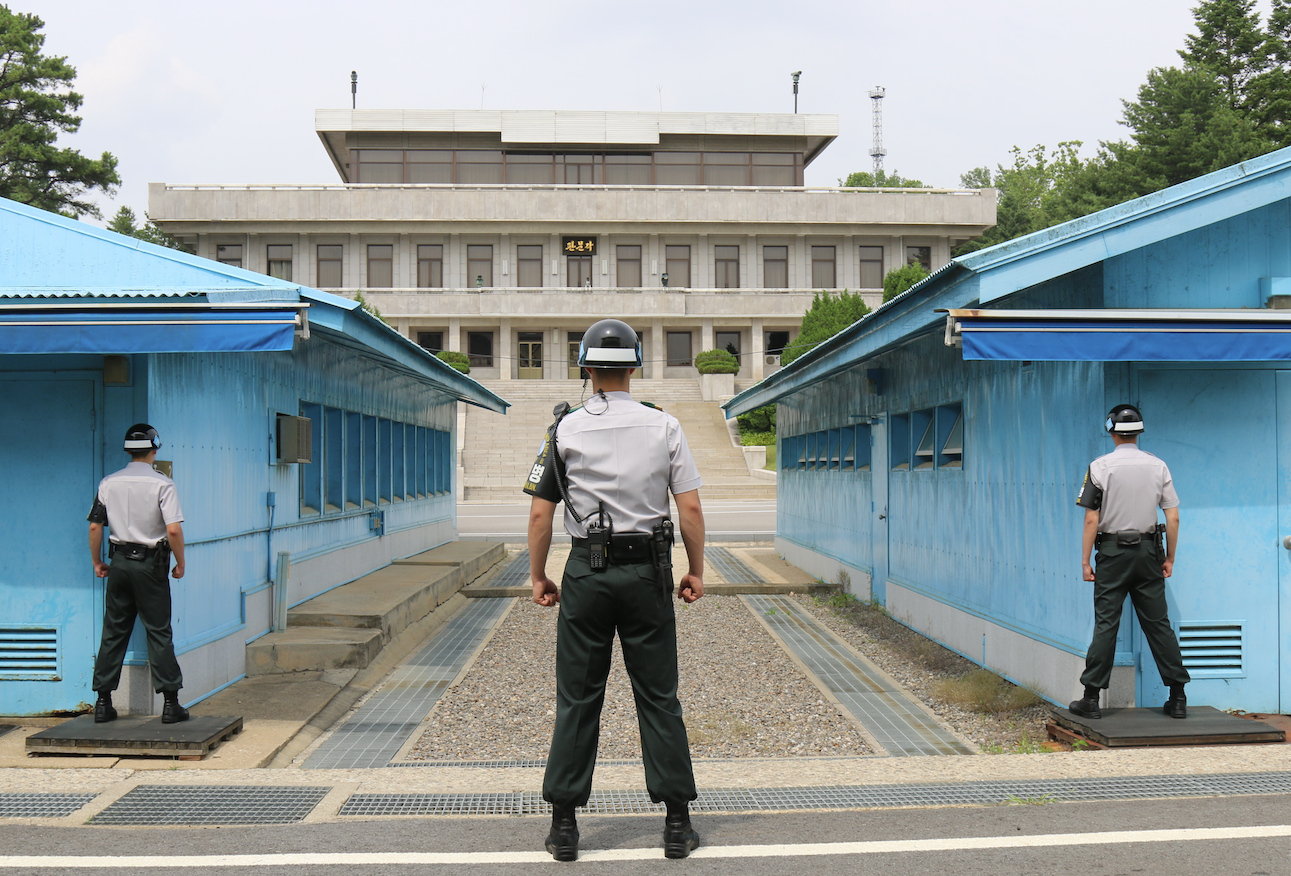
The U.S. and South Korea’s ability to deter North Korea will be greatly decreased if a major military exercise planned for the peninsula April is canceled, the former commander of U.S. forces in Korea said on Monday.
President Donald Trump ordered it as a move to encourage North Korea to accept “complete verifiable and irreversible dismantlement” of its nuclear and missile weapons programs. But extending the suspension of the exercises without real military concessions from North Korea “is not sustainable from a military perspective,” retired Army Gen. Walter “Skip” Sharp said at the Center for Strategic and International Studies in Washington, D.C.
Sharp was not alone in that judgment of the necessity in keeping military deterrence in place and economic pressure on North Korea to have it negotiate seriously on these questions.
“We know things are not going well,” Sue Mi Terry, a CSIS Korean specialist, said, based on the Secretary of State Mike Pompeo’s latest attempt to broaden talks with North Korea beyond pleasantries or resolving simple issues. “Why are they playing hardball” over returning remains of American service members killed in the Korean War, she asked.
Terry and Christopher Green, an expert on Asia-Pacific security issues at CSIS, noted there was still no agreed-upon definition of what “denuclearization” means to Kim Jong Un and his regime and how that meshes with the American and U.N. Security Council’s understanding.
In fact, “North Korea’s position is getting better without doing much,” Green said.
“The implementation of sanctions are loosening,” noting recent news accounts of ship-to-ship transfers of petroleum products from Chinese and Russian vessels to those of North Korea, Terry said.
But keeping the economic pressure on North Korea was critical to get Kim moving on the nuclear issue, Sharp said, “and putting some timeline” in place to do that or “we’re back in the cycle” of delay, stall, play for time rather than taking any concrete steps to change — possibly beyond the return of the remains and the dismantling of a missile testing site.
The way to go, in Sharp’s opinion, after a timeline is set is to say: “Here’s what needs to happen and make it public to Kim Jong Un.”
For Kim, the goal in these talks and his earlier meetings with Chinese President Xi Jin-ping is to be “an accepted nuclear power,” a major player regionally and internationally, Terry said. One way to do that is to wait out the Trump administration and talk with a new team in Washington possibly willing to accept Pyongyang in the same way the United States acknowledges Pakistan and India.
Kim wants to retain “coercive power” to reach that target, Sharp said.
That translates into “having a second strike [nuclear] capability … to force South Korea, Northeast Asia and United States to give him something” when he applies military pressure or offers a concession of some sort. In the long run, “coercive power” also would mean “reunification under North Korean control,” he said.
Earlier, Sharp said Pyongyang’s goals came down to “splitting the alliance” by drawing down U.S. forces in Korea and commitment to Seoul’s defense. He added that he did not see the administration making any of those moves and earlier cited the deployment of the Terminal High Altitude Area Defense systems as strengthening Korea’s security.
Having retired Navy Adm. Harry Harris in place as ambassador to Korea “is a positive step forward,” Green added, citing his experience in dealing not only with Korea but China as the senior military officer in the Pacific.
China is and will remain key to what happens with its “pseudo-ally,” in Green’s words, and its future military stance.
“China does not want a nuclear North Korea,” Sharp added.
But the great unknown is that “we’ve seen no counter” to what would happen if Kim continues nuclear and missile programs clandestinely that the United States discovers. Terry said a return to “fire and fury” rhetoric from the president likely wouldn’t be effective a second time.
Trump said unless Kim “greatly embarrasses the president” as happened earlier and Trump called off the summit the situation is not likely to change at least through the congressional midterm elections in November.
Right now, less than two months after the meeting between Trump and Kim, Sharp concluded, “We are in a better place marginally.”
None of the panelists speculated how long that might last.





